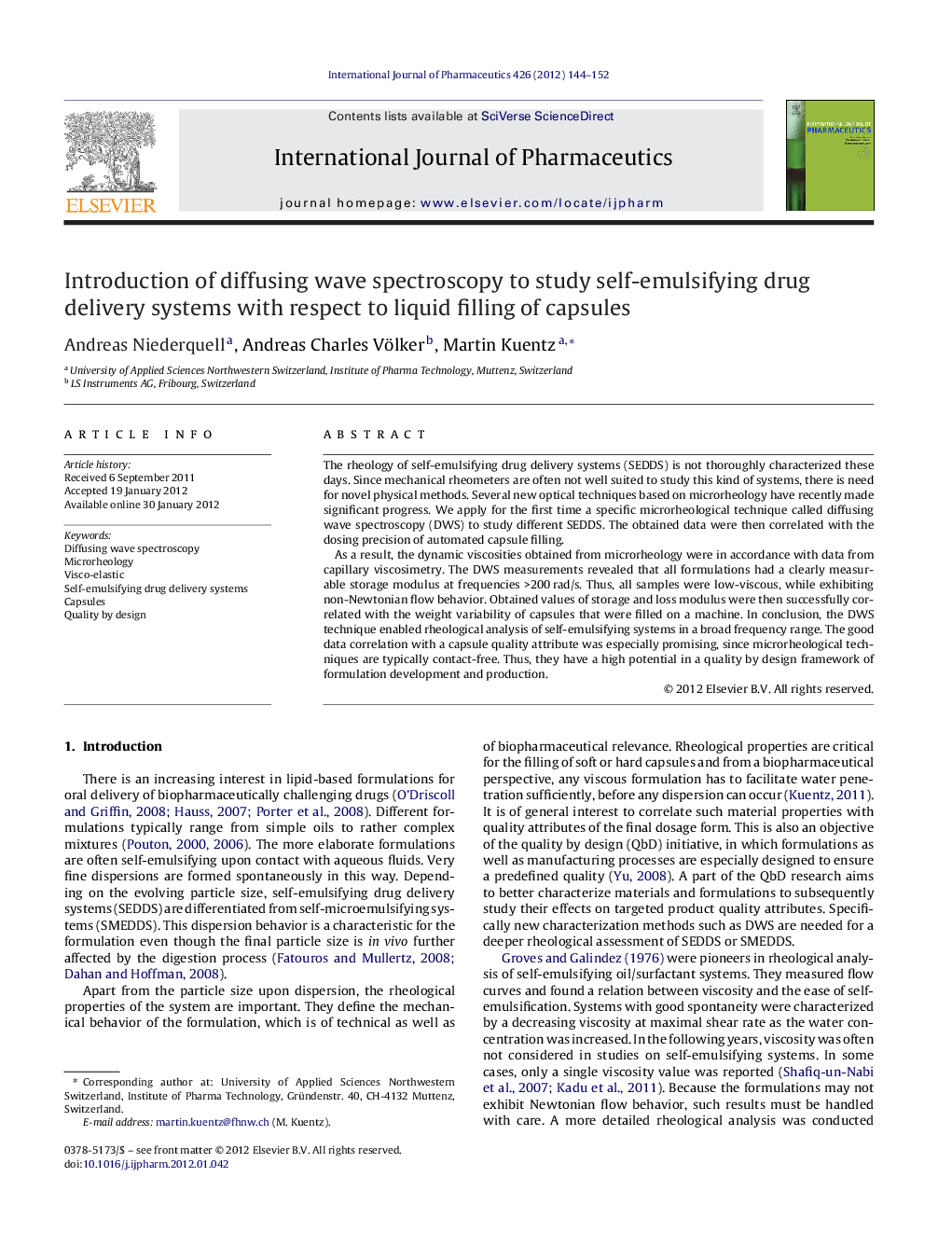| Article ID | Journal | Published Year | Pages | File Type |
|---|---|---|---|---|
| 5820890 | International Journal of Pharmaceutics | 2012 | 9 Pages |
The rheology of self-emulsifying drug delivery systems (SEDDS) is not thoroughly characterized these days. Since mechanical rheometers are often not well suited to study this kind of systems, there is need for novel physical methods. Several new optical techniques based on microrheology have recently made significant progress. We apply for the first time a specific microrheological technique called diffusing wave spectroscopy (DWS) to study different SEDDS. The obtained data were then correlated with the dosing precision of automated capsule filling.As a result, the dynamic viscosities obtained from microrheology were in accordance with data from capillary viscosimetry. The DWS measurements revealed that all formulations had a clearly measurable storage modulus at frequencies >200Â rad/s. Thus, all samples were low-viscous, while exhibiting non-Newtonian flow behavior. Obtained values of storage and loss modulus were then successfully correlated with the weight variability of capsules that were filled on a machine. In conclusion, the DWS technique enabled rheological analysis of self-emulsifying systems in a broad frequency range. The good data correlation with a capsule quality attribute was especially promising, since microrheological techniques are typically contact-free. Thus, they have a high potential in a quality by design framework of formulation development and production.
Graphical abstractDownload high-res image (104KB)Download full-size image
